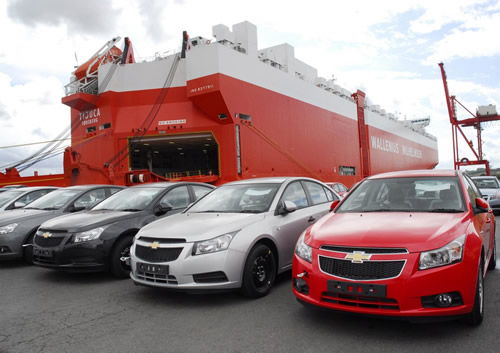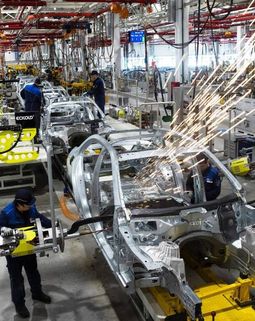The automobile industry in Ghana has emerged as a significant contributor to the country's economy, with recent valuations estimating its worth at an impressive $4.6 billion. This article delves into the factors driving the growth of Ghana's automotive sector, analyzes its economic impact, and explores opportunities for further expansion and development.
Understanding Ghana's Automotive Landscape
Ghana's automotive industry has experienced notable growth and transformation in recent years, driven by a combination of domestic demand, government policies, and foreign investment. With a burgeoning middle class, rapid urbanization, and increasing disposable incomes, Ghana presents a promising market for automotive manufacturers, dealers, and service providers seeking to capitalize on growing demand for vehicles and related services.
Economic Valuation: Assessing the Industry's Worth
Recent valuations have pegged Ghana's automobile industry at an impressive $4.6 billion, highlighting its significance as a key sector of the economy. This valuation takes into account various components of the automotive value chain, including vehicle assembly, sales, servicing, spare parts manufacturing, and related services. The industry's contribution to employment generation, revenue generation, and industrial development further underscores its importance to Ghana's economic growth and diversification efforts.
Drivers of Growth: Factors Fueling Expansion
Several factors contribute to the growth and expansion of Ghana's automobile industry, including favorable demographic trends, government policies supporting local manufacturing and assembly, and increasing investments from domestic and foreign stakeholders. The government's automotive development agenda, which includes incentives for local production, import tariffs on assembled vehicles, and support for infrastructure development, has played a crucial role in stimulating growth and attracting investment in the sector.
Market Analysis: Opportunities and Challenges
An analysis of Ghana's automotive market reveals a mix of opportunities and challenges for industry stakeholders. On the one hand, rising demand for vehicles, particularly in the commercial and passenger segments, presents lucrative opportunities for manufacturers, dealerships, and service providers to expand their operations and capture market share.
On the other hand, infrastructure constraints, import tariffs, and competition from imported used vehicles pose challenges to the growth and competitiveness of the local automotive industry.
Government Initiatives: Driving Industry Development
The Ghanaian government has implemented various initiatives to support the development of the automotive industry and enhance its contribution to economic growth and job creation. These initiatives include the establishment of automotive industrial parks, vocational training programs for automotive technicians, and partnerships with international automotive companies to transfer technology and expertise.
By fostering an enabling environment for investment and innovation, the government aims to position Ghana as a regional hub for automotive manufacturing and assembly.
Conclusion: Charting the Future of Ghana's Automotive Industry
In conclusion, Ghana's automobile industry holds immense potential as a driver of economic growth, industrial development, and job creation. With a favorable policy environment, growing consumer demand, and strategic investments, the industry is well-positioned to capitalize on emerging opportunities and overcome challenges to realize its full potential.
By fostering collaboration between government, industry stakeholders, and development partners, Ghana can chart a course towards a vibrant and competitive automotive sector that contributes significantly to the country's socioeconomic development agenda.





